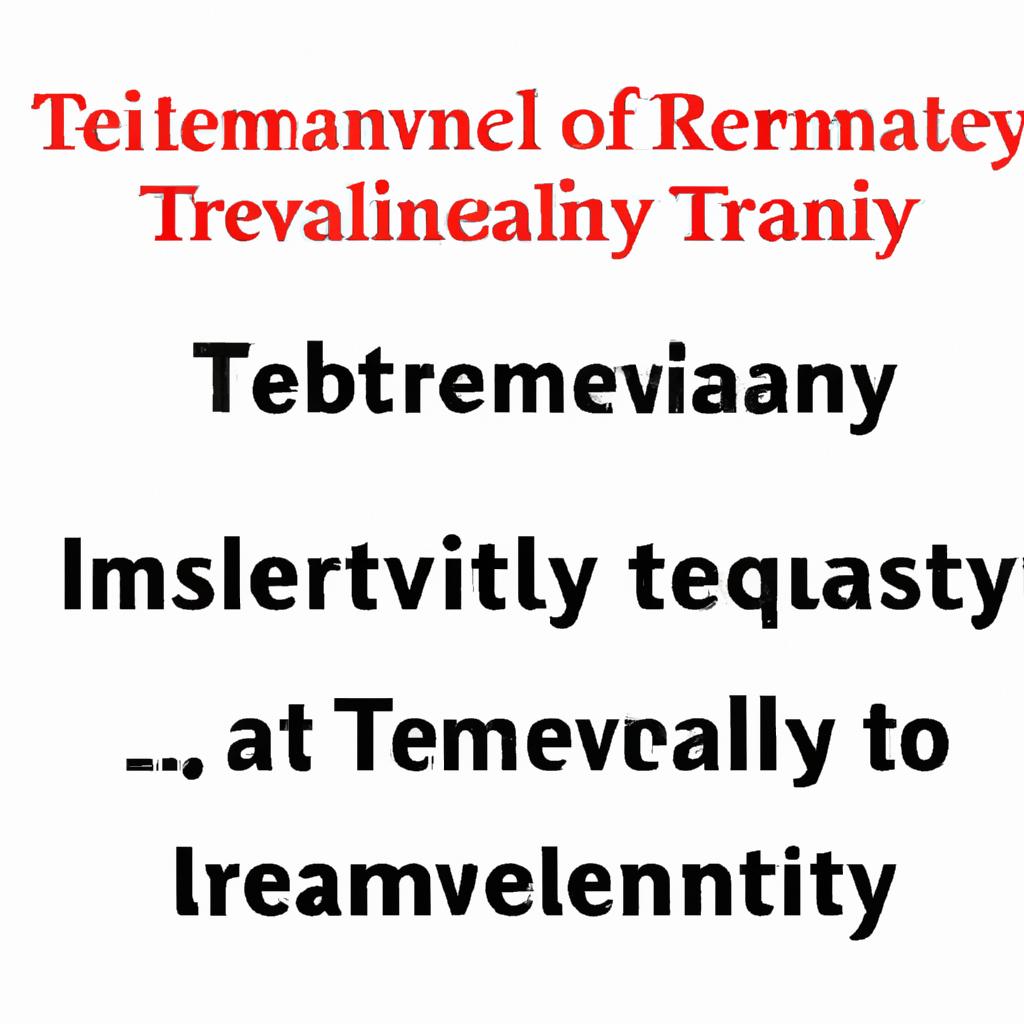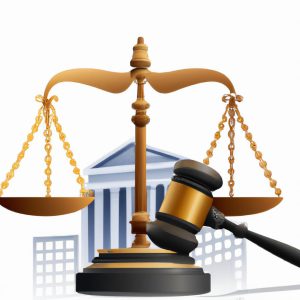Are testamentary trusts truly set in stone or are they flexible structures that can be altered as circumstances change? This question often arises in the realm of estate planning, as individuals seek to ensure the smooth distribution of their wealth and assets after their passing. In this article, we will explore the complexities surrounding testamentary trusts and whether they are truly irrevocable. As experienced lawyers at Morgan Legal Group in New York City, we aim to provide clarity on this matter and aid individuals in making informed decisions regarding their estate plans.
Understanding the Nature of Testamentary Trusts
When it comes to testamentary trusts, one question that frequently arises is whether they are irrevocable. The simple answer is that testamentary trusts are indeed typically irrevocable. This means that once the trust is established through a person’s will, the terms and conditions outlined in the trust cannot be changed or revoked by anyone, including the person who created the trust.
It is important to understand that the irrevocability of a testamentary trust provides a level of security and protection for the assets held within the trust. This can be particularly beneficial in ensuring that the wishes of the trust creator are carried out as intended. While flexibility may be limited with an irrevocable trust, the permanence it offers can provide peace of mind for both the trust creator and the beneficiaries named in the trust.

The Irrevocability Principle of Testamentary Trusts
When it comes to testamentary trusts, one key principle to keep in mind is their irrevocability. Once a testamentary trust is established, it cannot be easily undone or revoked by the grantor. This means that the assets and property placed in the trust are no longer under the direct control of the grantor and must be managed according to the terms and instructions laid out in the trust document
**Some key points to consider about the irrevocability of testamentary trusts include:**
- The grantor cannot simply change their mind and take back the assets placed in the trust
- Beneficiaries of the trust may have certain rights and interests that are protected by law
- Trustees must act in the best interests of the beneficiaries and follow the instructions set forth in the trust document
| Grantor’s Role | Beneficiaries’ Rights |
|---|---|
| Cannot easily revoke or change the trust | Protected by law |

Exceptions to the Irrevocability Rule
In certain circumstances, testamentary trusts may be subject to exceptions to the general rule of irrevocability. These exceptions can provide flexibility and allow for modifications or terminations of the trust under specific conditions. It is important to be aware of these exceptions and how they may impact the administration of a trust.
One common exception to the irrevocability rule is the presence of a modification clause in the trust document. This clause allows the trust creator, or another designated party, to make changes to the trust terms during the trust’s lifetime. Additionally, certain jurisdictions may allow for court-approved modifications or terminations of testamentary trusts in cases of changed circumstances or unforeseen events. It is recommended to consult with an experienced estate planning attorney to understand the specific rules and options available in your jurisdiction when considering the irrevocability of a testamentary trust.
Strategies for Flexibility within Testamentary Trusts
When it comes to testamentary trusts, many people wonder if they are irrevocable. The answer to this question is not a simple yes or no. Testamentary trusts are typically irrevocable, meaning that once they are created, they cannot be revoked or changed. However, there are certain strategies that can be implemented to introduce flexibility within testamentary trusts.
One strategy for introducing flexibility within a testamentary trust is to include provisions that allow for the appointment of a trust protector. A trust protector is an individual or entity that is given the power to make certain changes to the trust, such as removing or appointing trustees, amending the trust terms, or even terminating the trust altogether. Another strategy is to include a power of appointment clause, which allows the trust beneficiaries to determine how assets are distributed within the trust. By incorporating these and other strategies into a testamentary trust, individuals can ensure that their estate planning goals are met while also maintaining a level of flexibility for future changes and circumstances.
Q&A
Q: Are testamentary trusts irrevocable?
A: That depends on the terms of the trust itself. Some testamentary trusts can be revocable, meaning they can be changed or terminated by the grantor during their lifetime. Others may be irrevocable, meaning they cannot be changed once they are established. It’s important to carefully review the trust document and consult with legal professionals to understand the specific terms and limitations of a testamentary trust.
To Conclude
In conclusion, while testamentary trusts are typically irrevocable once the grantor passes away, there may be certain circumstances where changes can be made. It is important to consult with a knowledgeable estate planning attorney to fully understand the implications of creating a testamentary trust and any potential flexibility available. Planning for the future can be complex, but with the right guidance, you can ensure your wishes are carried out the way you envision. Remember, estate planning is a personal and unique process, so take the time to consider your options carefully to create a plan that best suits your needs and goals.
 Testamentary trusts are an estate planning tool used by individuals to distribute their assets and provide for their loved ones after their passing. One of the most common questions asked about testamentary trusts is whether or not they are irrevocable. In this article, we will explore the definition of a testamentary trust, discuss the different types of testamentary trusts, and answer the question – are testamentary trusts irrevocable?
Testamentary trusts are an estate planning tool used by individuals to distribute their assets and provide for their loved ones after their passing. One of the most common questions asked about testamentary trusts is whether or not they are irrevocable. In this article, we will explore the definition of a testamentary trust, discuss the different types of testamentary trusts, and answer the question – are testamentary trusts irrevocable?
A testamentary trust is a type of trust that is created within a person’s will and only takes effect after their death. It allows for the distribution of assets to be managed by a trustee for the benefit of the beneficiaries. The trustee has a legal obligation to follow the instructions outlined in the trust and act in the best interest of the beneficiaries.
There are two types of testamentary trusts: discretionary and fixed. A discretionary trust gives the trustee full discretion over how and when the assets are distributed to the beneficiaries. This type of trust is commonly used for minor beneficiaries or individuals with special needs who may not be able to manage their inheritance on their own. On the other hand, a fixed trust provides a specific distribution plan for the assets, often in the form of regular payments to the beneficiaries.
Now, let’s answer the question – are testamentary trusts irrevocable? The answer is yes, testamentary trusts are generally considered irrevocable. This means that once the trust is created and becomes effective after the individual’s death, it cannot be changed or revoked. The assets placed in the trust are no longer considered part of the individual’s estate, and the trust itself becomes a separate legal entity.
It is important to note that while testamentary trusts are generally irrevocable, there are some exceptions. For example, the trust can be dissolved if all the beneficiaries agree to do so, or if circumstances arise where the trust is no longer practical or necessary. Additionally, if the trust has been set up as a discretionary trust, the trustee may have the power to make changes to the distribution plan as needed.
So why are testamentary trusts irrevocable? The main reason is to ensure that the wishes of the individual creating the trust, also known as the grantor or settlor, are honored after their passing. It also provides a level of protection for the trust assets, as they cannot be challenged or changed by creditors or disgruntled family members.
There are several benefits to having an irrevocable testamentary trust. One of the main advantages is the potential for tax savings. Since the assets placed in the trust are no longer considered part of the individual’s estate, they are not subject to estate taxes. This can result in significant tax savings for both the grantor and the beneficiaries.
Another benefit is the protection of assets. By placing assets in an irrevocable trust, they are shielded from potential creditors, lawsuits, and other legal obligations. This can be especially useful if the grantor is concerned about leaving a large inheritance to a beneficiary who may have financial troubles or be vulnerable to scams.
It is worth noting that since testamentary trusts are irrevocable, it is essential to carefully consider all the implications and potential limitations of creating one. This is why it is crucial to work with an experienced estate planning attorney when setting up a trust. They can help guide you through the process, ensuring that your trust is properly drafted and in line with your wishes.
In conclusion, testamentary trusts are a valuable tool for estate planning, allowing individuals to provide for their loved ones even after they are gone. While they are generally considered irrevocable, there may be exceptions, and it is essential to seek legal advice and carefully consider all options before creating a testamentary trust. With proper planning, a testamentary trust can provide peace of mind and financial security for both the grantor and their beneficiaries.











